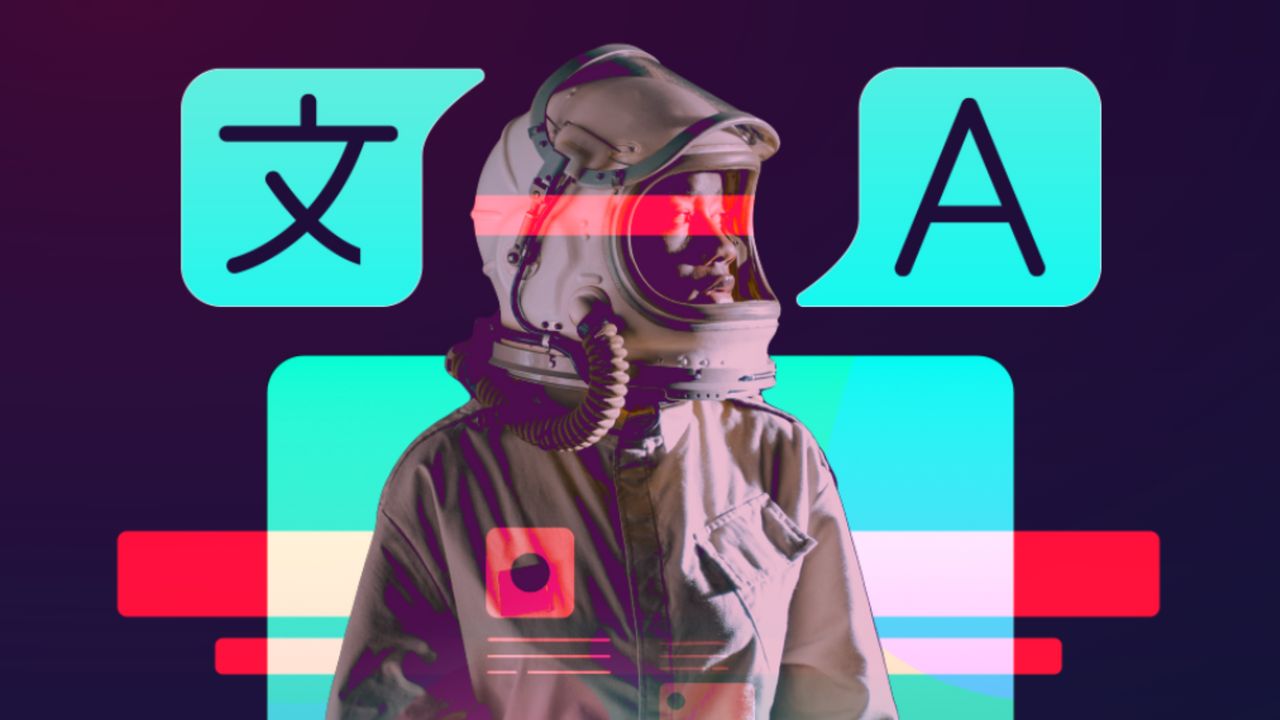alugha goes podcasts
Thanks to alugha, it is now possible to listen to podcasts, to enregister them as well as to trancribe and to multilingualise them
alugha makes its GDPR-compliant translation platform accessible to all user groups with alugha2go

Read this article in: Deutsch, English
Estimated reading time:4minutesMannheim, Aug. 03, 2022 +++ alugha GmbH, an expert in multilingual video and audio content delivery (https://alugha.com), has launched "alugha2go Fast," a browser-based application that now allows content creators, YouTubers, podcasters and even private individuals, in addition to international companies and educational institutions, to automatically translate video and audio files into the desired language - without an account or registration. Users simply paste the link to a file stored on YouTube, Vimeo or the alugha platform into the alugha2go page and select their target language(s) and a voice. After a few minutes, they receive a link that allows them to download the multilingually prepared video or audio file along with a transcript.
Pro version for business users
While the low-cost "Fast" version is purely AI-based, "alugha2go Pro" is an application that meets even higher quality standards - and thus especially meets the requirements of companies and educational institutions that have tons of videos to translate: Expert native speakers review the AI-based translation and, if necessary, make corrections and adjustments to the transcript. "Because we train the AI with many thousands of videos and languages every day, it achieves a translation accuracy of around 95 percent," explains Bernd Korz, founder and CEO of alugha. "We achieve the last five by working with native speakers." Not only is the process the same as with "alugha2go Fast," but the translation is also available in a short time.
Natural Language Processing as a technological basis
For the benefit of an automated translation process, alugha uses various Natural Language Processing (NLP) methods: from automatic speech recognition (Speech-to-Text; STT) to machine translation (Neural Machine Translation; NMT) and speech synthesis (Text-to-Speech; TTS). These technologies are bundled in the online translation workspace dubbr, to which registered alugha customers also have access, and combined there with suitable open source solutions. For example, the text-to-speech process uses two AI models, Tacotron 2 and FastSpeech 2, which alugha continually optimizes using its own audio and text data. Through this re-training, the neural networks and machine learning algorithms which alugha2go is based on, continue to improve - as does the training data.
User data are secure
Unlike its U.S. competitors, alugha attaches great importance to the protection and security of user data. alugha does not use tracking cookies and processes customer data in compliance with the requirements of the GDPR: it remains in German data centers that are ISO/IEC 27001 certified and run on energy from hydropower.
The combination of platform, player, hosting and encoding is unique on the market
"Besides data protection, alugha's advantage is certainly its unique combination of content management platform, multilingual player, encoding technology and hosting service," says Bernd Korz. "Companies benefit from significantly more efficient workflows. Not only can they generate and deliver more videos and audios in countless languages in significantly less time, but they can also map different use cases. Output written language as audio, convert audio into subtitles as well as transcripts, and the like. Here, the interaction of human and artificial intelligence produces optimal results."
alugha supports inclusion and accessibility
For alugha, participation in education must not fail due to language barriers. "We believe that all people - no matter where they live, what gender they are or whether they have physical impairments - have an irrevocable right to education," Bernd Korz continues. alugha's technology is an important milestone on the road to true inclusion and accessibility. "More than 460 million people worldwide are hearing impaired or deaf," explains Bernd Korz. "Ninety-five percent of all podcasts do not offer transcripts and consequently exclude half a billion potential users. We are counteracting this." With the code "IFA30", users of alugha and alugha2go receive a 30 percent discount on their translation orders until September 10, 2022
About alugha
Founded in 2014 and headquartered in Mannheim, Germany, alugha GmbH (https://alugha.com) is a software company specializing in delivering video and audio content multilingually using artificial intelligence and translation teams around the world. The eponymous one-stop-shop video platform solution uses Natural Language Processing (NLP) techniques such as automatic speech recognition (Speech-to-Text; TTS), machine translation (Neural Machine Translation; NMT) and speech synthesis (Text-to-Speech; TTS). The tool, which can be used intuitively via the browser, allows videos and audios to be automatically translated into over 200 languages using AI. The "dubbr" integrated into the platform allows videos to be translated into any language and even dialects. At the same time, alugha attaches great importance to data privacy and security. alugha does not use Google tracking or Facebook Pixel. The family-owned company processes its users' data in a GDPR-compliant manner at all times: it remains in ISO/IEC 27001-certified data centers in Germany that are powered by energy from hydropower. alugha employs around 40 people. More than five million users visit the platform every month. alugha's reference customers include BASF, CHNC Pharmacology University, CoHu, Duravit, John Deere, Meisterklasse, Röchling and Trimble.
| Code | Name | Views | Percentage |
|---|---|---|---|
| eng | English | 114 | 58.76% |
| deu | Deutsch | 80 | 41.24% |
| Total | 194 | 100% | |
Thanks to alugha, it is now possible to listen to podcasts, to enregister them as well as to trancribe and to multilingualise them
Podcasts enjoy great popularity. However, you still don't find transcripts for them that often. But why do you actually need a podcast transcript? And how do I create one?
The year 2023 has started and the alugha team wishes you a happy, healthy and successful new year. We also have a tip for you: start your year multilingually!